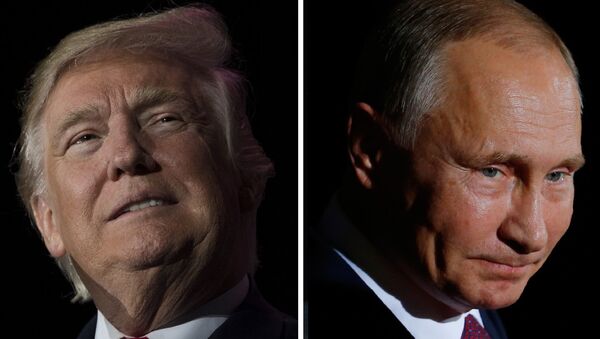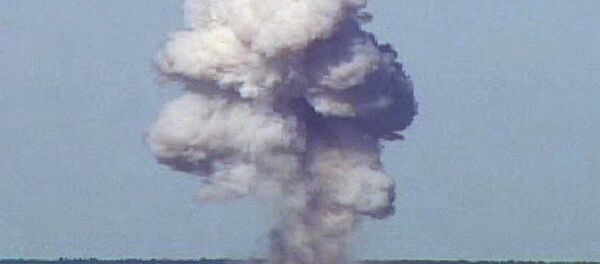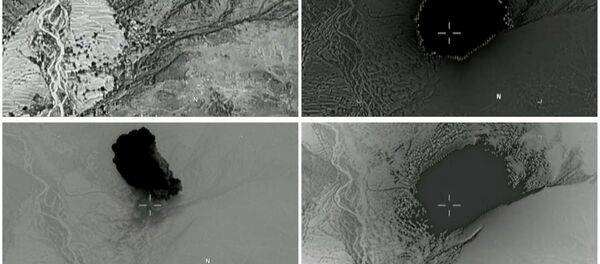WASHINGTON(Sputnik) — The dropping of the Massive Ordnance Air Blast (MOAB) bomb in Afghanistan and escalating tensions with North Korea have decreased the likelihood that presidents Donald Trump and Vladimir Putin will meet soon, retired US Air Force Lt. Col. Karen Kwiatkowski told Sputnik on Friday.
"I thought they were good until the MOAB was dropped near the Afghanistan-Pakistan border and the Pacific Fleet was tasked to reorient toward North Korea," Kwiatkowski said.
Kwiatkowski anticipated that Putin and other senior Russian political and military leaders would need time to assess the implications of these US actions, as well as the results of Secretary of State Rex Tillerson’s talks with them in Moscow earlier this week.
"I would expect Putin to spend more time assessing this emergent interventionist and militarist shift, which in fact has been fundamentally in place for two previous presidencies, and trying to understand exactly who is advising Mr. Trump," she said.
"I expected that statements and actions on both sides would be walked back given the politically radical nature of the missile attack on the Syrian Air Base, and hasty assumptions out of Washington that predicated the attack," she said.
However, the two countries still needed to repair the damage caused by their widely divergent views on who was responsible for the detonation of chemical agent in the Syria village of Khan Shaykhun in Syria’s Idlib province on April 4, Kwiatkowski pointed out.
"There is clear disagreement between the Trump administration and Russia about the source of the chemical weapon that exploded in Idlib. One or both sides will need to put forth their pertinent intelligence soon and some agreement reached," she noted.
"Because without a shared truth, relationships in the region between the US and Russia will continue to be unpredictable and vulnerable," she said.
Trump and Putin needed to coordinate their policies on destroying Daesh terror group (outlawed in Russia), Kwiatkowski observed.
"Ideally, some common ground can be reached on mutual objectives in Syria and vis a vis the Islamic State [Daesh], and a US-Russia partnership will be rebuilt and reliable," she predicted.
Kwiatkowski suggested that Tillerson recognizes the US-Russia partnership is necessary to satisfy President’s Trump’s general objectives in the Middle East.
The United States and Russia needed to narrow their differences on Syria by telling the truth to each other and sharing intelligence, and assessments of which sources can be trusted in order to advance their mutual goals and interests, Kwiatkowski advised.




